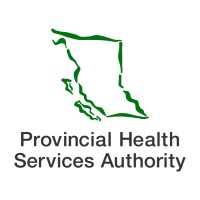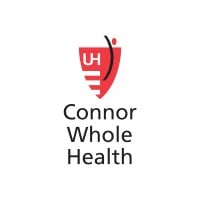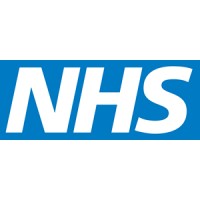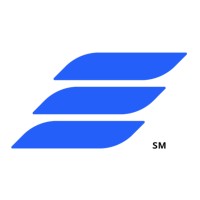Company Details
conifer-health-solutions
7,666
91,935
62
coniferhealth.com
0
CON_2006325
In-progress


Conifer Health Solutions Company CyberSecurity Posture
coniferhealth.comFor over 35 years, Conifer Health has partnered with health systems, hospitals, physician groups, and employers to deliver tailored, technology-enabled revenue cycle and value-based care solutions that improve financial performance, enhance the care experience, and reduce the cost to collect. Supporting more than 600 clients and managing over $32 billion in NPR annually, we operate with a “by operators, for operators” mindset — combining deep operational expertise with intelligent automation, advanced analytics, and a mature global delivery model. Our commitment is simple: deliver on client goals with full transparency and measurable outcomes at every step.
Company Details
conifer-health-solutions
7,666
91,935
62
coniferhealth.com
0
CON_2006325
In-progress
Between 650 and 699

 CHS Global Score (TPRM)
CHS Global Score (TPRM)XXXX

Description: Conifer Value-Based Care Reports Email Breach Exposing Pediatric Patient Data On August 28, 2025, Conifer Value-Based Care, LLC a subsidiary of Conifer Health Solutions providing administrative services to healthcare providers and plans detected unauthorized access to an employee’s Microsoft Office 365-hosted business email account. The breach, which also occurred on August 29, exposed personally identifiable information (PII) and protected health information (PHI) of pediatric patients, their parents, and guarantors. The compromised data included names, dates of birth, medical details, and health insurance information, though the exact scope varied by individual. Notably, the breach was isolated to the email account and did not affect Conifer’s internal networks or systems. Conifer contained the threat immediately and launched an investigation, concluding on November 10, 2025, with affected providers and health plans notified by November 14. Address verification for impacted individuals was finalized by December 5, and the breach was officially disclosed to the California Attorney General on December 18, 2025. A Notice of Data Breach was also posted on Conifer’s website. In response, the company enhanced security controls and monitoring to prevent future incidents and collaborated with providers to notify affected parties. While no evidence suggests misuse of the exposed data, the breach underscores risks to sensitive healthcare information.
Description: Conifer Revenue Cycle Solutions, LLC (“we” or “Conifer”), a provider of revenue cycle management and other administrative services to healthcare providers, suffered a cybersecurity incident that affected its users' personal information. An unauthorized third party gained access to a Microsoft Office 365-hosted business email account and compromised certain information. The exposed information involved information to identify the individual (such as full name, date of birth, and address); (2) Social Security number, driver’s license/state ID number, and/or financial account information; (3) medical and/or treatment information (such as medical record number, dates of service, provider and facility, diagnosis or symptom information, and prescription/medication); (4) health insurance information (such as payor name and subscriber/Medicare/Medicaid number); and (5) billing and claims information. However, upon revelation, the email account was separate from Conifer’s internal network and systems, and those who were affected were notified.
Description: Baptist Health System suffered a data breach incident after an unauthorized party gained access to the company’s computer network after installing a line of malicious code on the System’s website. The breach compromised the full names, dates of birth, addresses, Social Security numbers, health insurance information, medical information and billing information of more than 1.2 million patients in Texas alone and many more in other areas. The health system suspended the affected systems to restrict further access and began working with a cybersecurity firm to investigate the incident.
Description: Good Samaritan and the St. Mary’s Medical Center in West Palm Beach suffered a ransomware attack that crippled its phone and computer systems. The attack affect many of its systems and disrupted its acute care operations. However, the hospital staff did not clear if any patient data was compromised or if ransom was demanded.
Description: The Vermont Office of the Attorney General disclosed a data breach affecting Conifer Revenue Cycle Solutions, LLC, discovered on April 14, 2022, but reported on September 30, 2022. The incident involved unauthorized access to a Microsoft Office 365-hosted email account, potentially compromising personal information of individuals. The exposed data included sensitive medical and health insurance details, raising concerns about privacy violations and potential misuse of protected health information (PHI). While the exact number of affected individuals was not specified, the breach highlights vulnerabilities in third-party vendor systems handling healthcare data. The delayed detection and reporting further exacerbate risks, as prolonged exposure increases the likelihood of fraud, identity theft, or secondary attacks leveraging the stolen information. The breach underscores the critical need for robust email security measures and timely incident response in sectors managing highly sensitive data.
Description: The California Office of the Attorney General reported on April 23, 2021, that Doctors Medical Center of Modesto experienced a data breach involving unsecured Protected Health Information (PHI) due to a misconfigured software update by the vendor Medifies on December 1, 2019. The breach potentially exposed various patient details, including names, addresses, and procedure information, though no Social Security numbers or financial information were involved.
Description: The Detroit Medical Center suffered from a data breach of health information that exposed about 1,529 patients. The DMC notified to the individuals whose data was compromised and offered credit monitoring for affected patients.


No incidents recorded for Conifer Health Solutions in 2026.
No incidents recorded for Conifer Health Solutions in 2026.
No incidents recorded for Conifer Health Solutions in 2026.
CHS cyber incidents detection timeline including parent company and subsidiaries

For over 35 years, Conifer Health has partnered with health systems, hospitals, physician groups, and employers to deliver tailored, technology-enabled revenue cycle and value-based care solutions that improve financial performance, enhance the care experience, and reduce the cost to collect. Supporting more than 600 clients and managing over $32 billion in NPR annually, we operate with a “by operators, for operators” mindset — combining deep operational expertise with intelligent automation, advanced analytics, and a mature global delivery model. Our commitment is simple: deliver on client goals with full transparency and measurable outcomes at every step.


Canada's first provincial health services authority. Provincial Health Services Authority (PHSA) is one of six health authorities – the other five health authorities serve geographic regions of BC. PHSA's primary role is to ensure that BC residents have access to a coordinated network of high-quali
A national blended health organization, Highmark Health and our leading businesses support millions of customers with products, services and solutions closely aligned to our mission of creating remarkable health experiences, freeing people to be their best. Headquartered in Pittsburgh, we're region

Integrative Medicine (IM) is an approach to healthcare that takes into account the whole person addressing the full range of physical, emotional, mental, social, spiritual, and environmental influences that affect an individual’s health. IM is informed by evidence, makes use of all appropriate thera

Mass General Brigham is an integrated academic health care system, uniting great minds to solve the hardest problems in medicine for our communities and the world. Mass General Brigham connects a full continuum of care across a system of academic medical centers, community and specialty hospitals, a
Beth Israel Deaconess Medical Center (BIDMC) is part of Beth Israel Lahey Health, a new health care system that brings together academic medical centers and teaching hospitals, community and specialty hospitals, more than 4,000 physicians and 35,000 employees in a shared mission to expand access to
The University of Texas MD Anderson Cancer Center is one of the world's most respected centers devoted exclusively to cancer patient care, research, education and prevention. MD Anderson provides cancer care at several convenient locations throughout the Greater Houston Area and collaborates with co

The NHS was launched in 1948. It was born out of a long-held ideal that good healthcare should be available to all, regardless of wealth – one of the NHS's core principles. With the exception of some charges, such as prescriptions, optical services and dental services, the NHS in England remains

NorthShore University HealthSystem, Swedish Hospital, Northwest Community Healthcare and Edward-Elmhurst Health are now united under one name: Endeavor Health. Together, we’re driven by our mission to help everyone in our communities be their best and our commitment to setting a new standard for he

O nascimento da Sociedade Beneficente Israelita Brasileira Albert Einstein, na década de 50, resultou do compromisso da comunidade judaica em oferecer à população brasileira uma referência em qualidade da prática médica. Mas a Sociedade queria ir além da simples construção de um hospital. E assi
.png)
TELFORD, PA, UNITED STATES, January 5, 2026 /EINPresswire.com/ — As cyber threats continue to increase in frequency and sophistication, Altek Business...
A former employee of Evoke Wellness at Hilliard has stolen and misused patient data, Conifer Value-Based Care has experienced an email...
Revenue cycle services company Conifer Health Solutions, a subsidiary of Tenet Healthcare, is collaborating with Google Cloud to add AI at...
"Discover how Conifer Health is leveraging AI-powered Revenue Cycle Management (RCM) by joining forces with Google Cloud. Learn about this groundbreaking...
The heightened role of private equity in extracting wealth from healthcare services has captured national attention in the media and...
Proposed federal healthcare budget cuts, aimed at achieving over $3 trillion in savings, are poised to create significant disruptions within the healthcare IT...
Tenet Healthcare completed its sale of three hospitals in South Carolina, along with affiliated physician clinics and other facilities,...
Respondents to Black Book's 20th annual outsourcing services survey reveal that over the next five years, healthcare will see a dramatic increase in...
Conifer Health Solutions, a revenue cycle and value-based care solution provider, has teamed up with Welldoc to launch a new digital health...

Explore insights on cybersecurity incidents, risk posture, and Rankiteo's assessments.
The official website of Conifer Health Solutions is http://coniferhealth.com.
According to Rankiteo, Conifer Health Solutions’s AI-generated cybersecurity score is 679, reflecting their Weak security posture.
According to Rankiteo, Conifer Health Solutions currently holds 0 security badges, indicating that no recognized compliance certifications are currently verified for the organization.
According to Rankiteo, Conifer Health Solutions has not been affected by any supply chain cyber incidents, and no incident IDs are currently listed for the organization.
According to Rankiteo, Conifer Health Solutions is not certified under SOC 2 Type 1.
According to Rankiteo, Conifer Health Solutions does not hold a SOC 2 Type 2 certification.
According to Rankiteo, Conifer Health Solutions is not listed as GDPR compliant.
According to Rankiteo, Conifer Health Solutions does not currently maintain PCI DSS compliance.
According to Rankiteo, Conifer Health Solutions is not compliant with HIPAA regulations.
According to Rankiteo,Conifer Health Solutions is not certified under ISO 27001, indicating the absence of a formally recognized information security management framework.
Conifer Health Solutions operates primarily in the Hospitals and Health Care industry.
Conifer Health Solutions employs approximately 7,666 people worldwide.
Conifer Health Solutions presently has no subsidiaries across any sectors.
Conifer Health Solutions’s official LinkedIn profile has approximately 91,935 followers.
Conifer Health Solutions is classified under the NAICS code 62, which corresponds to Health Care and Social Assistance.
No, Conifer Health Solutions does not have a profile on Crunchbase.
Yes, Conifer Health Solutions maintains an official LinkedIn profile, which is actively utilized for branding and talent engagement, which can be accessed here: https://www.linkedin.com/company/conifer-health-solutions.
As of January 22, 2026, Rankiteo reports that Conifer Health Solutions has experienced 7 cybersecurity incidents.
Conifer Health Solutions has an estimated 31,582 peer or competitor companies worldwide.
Incident Types: The types of cybersecurity incidents that have occurred include Ransomware and Breach.
Detection and Response: The company detects and responds to cybersecurity incidents through an third party assistance with cybersecurity firm, and containment measures with suspended affected systems, and communication strategy with notified affected individuals and offered credit monitoring, and communication strategy with public disclosure via vermont ag office, and incident response plan activated with yes, and containment measures with immediate containment of the threat, and remediation measures with enhanced security controls and monitoring practices, and recovery measures with completion of investigation and notification process, and communication strategy with notification to affected providers, health plans, and individuals; posting of notice of data breach on dedicated website, and enhanced monitoring with yes..
Title: Ransomware Attack on Good Samaritan and St. Mary’s Medical Center
Description: Good Samaritan and the St. Mary’s Medical Center in West Palm Beach suffered a ransomware attack that crippled its phone and computer systems. The attack affected many of its systems and disrupted its acute care operations. However, the hospital staff did not confirm if any patient data was compromised or if ransom was demanded.
Type: Ransomware
Title: Baptist Health System Data Breach
Description: Baptist Health System suffered a data breach incident after an unauthorized party gained access to the company’s computer network after installing a line of malicious code on the System’s website. The breach compromised the full names, dates of birth, addresses, Social Security numbers, health insurance information, medical information and billing information of more than 1.2 million patients in Texas alone and many more in other areas. The health system suspended the affected systems to restrict further access and began working with a cybersecurity firm to investigate the incident.
Type: Data Breach
Attack Vector: Malicious Code Injection
Threat Actor: Unauthorized Party
Title: Detroit Medical Center Data Breach
Description: The Detroit Medical Center suffered from a data breach of health information that exposed about 1,529 patients.
Type: Data Breach
Title: Conifer Revenue Cycle Solutions Data Breach
Description: Conifer Revenue Cycle Solutions, LLC, a provider of revenue cycle management and other administrative services to healthcare providers, suffered a cybersecurity incident that affected its users' personal information. An unauthorized third party gained access to a Microsoft Office 365-hosted business email account and compromised certain information.
Type: Data Breach
Attack Vector: Email Account Compromise
Vulnerability Exploited: Unauthorized Access to Email Account
Threat Actor: Unauthorized Third Party
Title: Data Breach at Doctors Medical Center of Modesto
Description: The California Office of the Attorney General reported on April 23, 2021, that Doctors Medical Center of Modesto experienced a data breach involving unsecured Protected Health Information (PHI) due to a misconfigured software update by the vendor Medifies on December 1, 2019. The breach potentially exposed various patient details, including names, addresses, and procedure information, though no Social Security numbers or financial information were involved.
Date Detected: 2021-04-23
Date Publicly Disclosed: 2021-04-23
Type: Data Breach
Attack Vector: Misconfigured Software Update
Vulnerability Exploited: Misconfiguration
Threat Actor: Medifies (vendor)
Title: Data Breach at Conifer Revenue Cycle Solutions, LLC
Description: The Vermont Office of the Attorney General reported a data breach involving Conifer Revenue Cycle Solutions, LLC. The breach involved unauthorized access to a Microsoft Office 365-hosted email account and may have affected personal information of individuals, including medical and health insurance information.
Date Detected: 2022-04-14
Date Publicly Disclosed: 2022-09-30
Type: Data Breach
Attack Vector: Unauthorized Access (Email Account Compromise)
Title: Conifer Value-Based Care Business Email Compromise and Data Breach
Description: Conifer Value-Based Care, LLC discovered that an unauthorized third party had gained access to an employee’s Microsoft Office 365-hosted business email account, exposing personally identifiable information (PII) and protected health information of pediatric patients, their parents, and guarantors.
Date Detected: 2025-08-28
Date Publicly Disclosed: 2025-12-18
Date Resolved: 2025-12-05
Type: Data Breach
Attack Vector: Business Email Compromise (BEC)
Vulnerability Exploited: Unauthorized access to Microsoft Office 365 email account
Common Attack Types: The most common types of attacks the company has faced is Breach.
Identification of Attack Vectors: The company identifies the attack vectors used in incidents through Malicious Code on Website, Microsoft Office 365-hosted Business Email Account, Microsoft Office 365 Email Account and Microsoft Office 365-hosted business email account.

Systems Affected: phonecomputer
Operational Impact: disrupted acute care operations

Data Compromised: Full names, Dates of birth, Addresses, Social security numbers, Health insurance information, Medical information, Billing information

Data Compromised: Health information

Data Compromised: Personal information, Social security numbers, Driver's license/state id numbers, Financial account information, Medical information, Health insurance information, Billing and claims information
Systems Affected: Microsoft Office 365-hosted Business Email Account

Data Compromised: Names, Addresses, Procedure information

Data Compromised: Medical information, Health insurance information
Systems Affected: Microsoft Office 365 Email Account
Identity Theft Risk: Potential (due to compromised PII)

Data Compromised: Personally identifiable information (PII) and protected health information (PHI)
Systems Affected: Microsoft Office 365-hosted business email account
Operational Impact: Investigation and notification processes initiated
Brand Reputation Impact: Potential reputational damage due to exposure of sensitive health data
Identity Theft Risk: High (exposure of PII and PHI)
Commonly Compromised Data Types: The types of data most commonly compromised in incidents are Full Names, Dates Of Birth, Addresses, Social Security Numbers, Health Insurance Information, Medical Information, Billing Information, , Health Information, Personal Information, Social Security Numbers, Driver'S License/State Id Numbers, Financial Account Information, Medical Information, Health Insurance Information, Billing And Claims Information, , Names, Addresses, Procedure Information, , Personal Information, Medical Information, Health Insurance Information, , Personally Identifiable Information (Pii), Protected Health Information (Phi) and .

Entity Name: ['Good Samaritan', 'St. Mary’s Medical Center']
Entity Type: Healthcare
Industry: Healthcare
Location: West Palm Beach

Entity Name: Baptist Health System
Entity Type: Health System
Industry: Healthcare
Location: TexasOther areas
Customers Affected: More than 1.2 million patients in Texas alone

Entity Name: Detroit Medical Center
Entity Type: Healthcare Provider
Industry: Healthcare
Location: Detroit, MI
Customers Affected: 1529

Entity Name: Conifer Revenue Cycle Solutions, LLC
Entity Type: Company
Industry: Healthcare

Entity Name: Doctors Medical Center of Modesto
Entity Type: Healthcare
Industry: Healthcare
Location: Modesto, California

Entity Name: Conifer Revenue Cycle Solutions, LLC
Entity Type: Private Company
Industry: Healthcare Revenue Cycle Management

Entity Name: Vermont Office of the Attorney General
Entity Type: Government Agency
Industry: Legal/Regulatory
Location: Vermont, USA

Entity Name: Conifer Value-Based Care, LLC
Entity Type: Healthcare Administrative Services
Industry: Healthcare
Customers Affected: Pediatric patients, their parents, and guarantors

Third Party Assistance: Cybersecurity Firm
Containment Measures: Suspended affected systems

Communication Strategy: Notified affected individuals and offered credit monitoring

Communication Strategy: Public Disclosure via Vermont AG Office

Incident Response Plan Activated: Yes
Containment Measures: Immediate containment of the threat
Remediation Measures: Enhanced security controls and monitoring practices
Recovery Measures: Completion of investigation and notification process
Communication Strategy: Notification to affected providers, health plans, and individuals; posting of Notice of Data Breach on dedicated website
Enhanced Monitoring: Yes
Incident Response Plan: The company's incident response plan is described as Yes.
Third-Party Assistance: The company involves third-party assistance in incident response through Cybersecurity Firm.

Type of Data Compromised: Full names, Dates of birth, Addresses, Social security numbers, Health insurance information, Medical information, Billing information
Number of Records Exposed: More than 1.2 million in Texas alone
Sensitivity of Data: High

Type of Data Compromised: Health Information
Number of Records Exposed: 1529

Type of Data Compromised: Personal information, Social security numbers, Driver's license/state id numbers, Financial account information, Medical information, Health insurance information, Billing and claims information
Sensitivity of Data: High
Personally Identifiable Information: Full NameDate of BirthAddressSocial Security NumberDriver's License/State ID NumberMedical Record NumberDates of ServiceProvider and FacilityDiagnosis or Symptom InformationPrescription/Medication

Type of Data Compromised: Names, Addresses, Procedure information
Sensitivity of Data: High
Personally Identifiable Information: namesaddresses

Type of Data Compromised: Personal information, Medical information, Health insurance information
Sensitivity of Data: High (PII, Medical, Insurance Data)

Type of Data Compromised: Personally identifiable information (pii), Protected health information (phi)
Sensitivity of Data: High (medical and health insurance details)
Personally Identifiable Information: NameDate of BirthMedical InformationHealth Insurance Details
Prevention of Data Exfiltration: The company takes the following measures to prevent data exfiltration: Enhanced security controls and monitoring practices.
Handling of PII Incidents: The company handles incidents involving personally identifiable information (PII) through by suspended affected systems and immediate containment of the threat.
Data Recovery from Ransomware: The company recovers data encrypted by ransomware through Completion of investigation and notification process.

Regulatory Notifications: Vermont Office of the Attorney General

Regulations Violated: HIPAA (potential),
Regulatory Notifications: California Attorney General (2025-12-18)

Lessons Learned: Importance of securing business email accounts and enhancing monitoring practices to prevent unauthorized access.

Recommendations: Sign up for free IDX identity theft protection services, Monitor credit reports and financial accounts for unusual activity, Be alert for phishing emails or phone calls, Consider placing a fraud alert or credit freeze with major credit bureausSign up for free IDX identity theft protection services, Monitor credit reports and financial accounts for unusual activity, Be alert for phishing emails or phone calls, Consider placing a fraud alert or credit freeze with major credit bureausSign up for free IDX identity theft protection services, Monitor credit reports and financial accounts for unusual activity, Be alert for phishing emails or phone calls, Consider placing a fraud alert or credit freeze with major credit bureausSign up for free IDX identity theft protection services, Monitor credit reports and financial accounts for unusual activity, Be alert for phishing emails or phone calls, Consider placing a fraud alert or credit freeze with major credit bureaus
Key Lessons Learned: The key lessons learned from past incidents are Importance of securing business email accounts and enhancing monitoring practices to prevent unauthorized access.
Implemented Recommendations: The company has implemented the following recommendations to improve cybersecurity: Monitor credit reports and financial accounts for unusual activity, Consider placing a fraud alert or credit freeze with major credit bureaus, Be alert for phishing emails or phone calls and Sign up for free IDX identity theft protection services.

Source: California Office of the Attorney General
Date Accessed: 2021-04-23

Source: Vermont Office of the Attorney General
Date Accessed: 2022-09-30

Source: Conifer Value-Based Care Notice of Data Breach
Additional Resources: Stakeholders can find additional resources on cybersecurity best practices at and Source: California Office of the Attorney GeneralDate Accessed: 2021-04-23, and Source: Vermont Office of the Attorney GeneralDate Accessed: 2022-09-30, and Source: Conifer Value-Based Care Notice of Data Breach.

Investigation Status: Investigation Ongoing

Investigation Status: Completed (2025-11-10)
Communication of Investigation Status: The company communicates the status of incident investigations to stakeholders through Notified affected individuals and offered credit monitoring, Public Disclosure via Vermont AG Office, Notification to affected providers, health plans and and individuals; posting of Notice of Data Breach on dedicated website.

Customer Advisories: Notified affected individuals and offered credit monitoring

Stakeholder Advisories: Notification to affected providers and health plans (2025-11-14)
Customer Advisories: Notification to potentially affected individuals (completed by 2025-12-05); support hotline provided (1-833-781-8318)
Advisories Provided: The company provides the following advisories to stakeholders and customers following an incident: were Notified affected individuals and offered credit monitoring, Notification to affected providers and health plans (2025-11-14) and Notification to potentially affected individuals (completed by 2025-12-05); support hotline provided (1-833-781-8318).

Entry Point: Malicious Code on Website

Entry Point: Microsoft Office 365-hosted Business Email Account

Entry Point: Microsoft Office 365 Email Account

Entry Point: Microsoft Office 365-hosted business email account

Root Causes: Misconfigured software update

Root Causes: Unauthorized access to an employee’s business email account
Corrective Actions: Enhanced security controls and monitoring practices
Post-Incident Analysis Process: The company's process for conducting post-incident analysis is described as Cybersecurity Firm, Yes.
Corrective Actions Taken: The company has taken the following corrective actions based on post-incident analysis: Enhanced security controls and monitoring practices.
Last Attacking Group: The attacking group in the last incident were an Unauthorized Party, Unauthorized Third Party and Medifies (vendor).
Most Recent Incident Detected: The most recent incident detected was on 2021-04-23.
Most Recent Incident Publicly Disclosed: The most recent incident publicly disclosed was on 2025-12-18.
Most Recent Incident Resolved: The most recent incident resolved was on 2025-12-05.
Most Significant Data Compromised: The most significant data compromised in an incident were Full names, Dates of birth, Addresses, Social Security numbers, Health insurance information, Medical information, Billing information, , Health Information, , Personal Information, Social Security Numbers, Driver's License/State ID Numbers, Financial Account Information, Medical Information, Health Insurance Information, Billing and Claims Information, , names, addresses, procedure information, , Medical Information, Health Insurance Information, and Personally identifiable information (PII) and protected health information (PHI).
Most Significant System Affected: The most significant system affected in an incident was phonecomputer and Microsoft Office 365-hosted Business Email Account and Microsoft Office 365 Email Account and .
Third-Party Assistance in Most Recent Incident: The third-party assistance involved in the most recent incident was Cybersecurity Firm.
Containment Measures in Most Recent Incident: The containment measures taken in the most recent incident were Suspended affected systems and Immediate containment of the threat.
Most Sensitive Data Compromised: The most sensitive data compromised in a breach were Personally identifiable information (PII) and protected health information (PHI), names, Health Insurance Information, Financial Account Information, Addresses, Billing and Claims Information, Driver's License/State ID Numbers, Social Security numbers, addresses, Dates of birth, Personal Information, Health Information, Medical Information, Billing information, Health insurance information, Social Security Numbers, Medical information, Full names and procedure information.
Number of Records Exposed in Most Significant Breach: The number of records exposed in the most significant breach was 1.2M.
Most Significant Lesson Learned: The most significant lesson learned from past incidents was Importance of securing business email accounts and enhancing monitoring practices to prevent unauthorized access.
Most Significant Recommendation Implemented: The most significant recommendation implemented to improve cybersecurity was Monitor credit reports and financial accounts for unusual activity, Consider placing a fraud alert or credit freeze with major credit bureaus, Be alert for phishing emails or phone calls and Sign up for free IDX identity theft protection services.
Most Recent Source: The most recent source of information about an incident are Vermont Office of the Attorney General, California Office of the Attorney General and Conifer Value-Based Care Notice of Data Breach.
Current Status of Most Recent Investigation: The current status of the most recent investigation is Investigation Ongoing.
Most Recent Stakeholder Advisory: The most recent stakeholder advisory issued was Notification to affected providers and health plans (2025-11-14), .
Most Recent Customer Advisory: The most recent customer advisory issued were an Notified affected individuals and offered credit monitoring and Notification to potentially affected individuals (completed by 2025-12-05); support hotline provided (1-833-781-8318).
Most Recent Entry Point: The most recent entry point used by an initial access broker were an Microsoft Office 365-hosted business email account, Microsoft Office 365 Email Account, Microsoft Office 365-hosted Business Email Account and Malicious Code on Website.
Most Significant Root Cause: The most significant root cause identified in post-incident analysis was Misconfigured software update, Unauthorized access to an employee’s business email account.
Most Significant Corrective Action: The most significant corrective action taken based on post-incident analysis was Enhanced security controls and monitoring practices.
.png)
SummaryA command injection vulnerability (CWE-78) has been found to exist in the `wrangler pages deploy` command. The issue occurs because the `--commit-hash` parameter is passed directly to a shell command without proper validation or sanitization, allowing an attacker with control of `--commit-hash` to execute arbitrary commands on the system running Wrangler. Root causeThe commitHash variable, derived from user input via the --commit-hash CLI argument, is interpolated directly into a shell command using template literals (e.g., execSync(`git show -s --format=%B ${commitHash}`)). Shell metacharacters are interpreted by the shell, enabling command execution. ImpactThis vulnerability is generally hard to exploit, as it requires --commit-hash to be attacker controlled. The vulnerability primarily affects CI/CD environments where `wrangler pages deploy` is used in automated pipelines and the --commit-hash parameter is populated from external, potentially untrusted sources. An attacker could exploit this to: * Run any shell command. * Exfiltrate environment variables. * Compromise the CI runner to install backdoors or modify build artifacts. Credits Disclosed responsibly by kny4hacker. Mitigation * Wrangler v4 users are requested to upgrade to Wrangler v4.59.1 or higher. * Wrangler v3 users are requested to upgrade to Wrangler v3.114.17 or higher. * Users on Wrangler v2 (EOL) should upgrade to a supported major version.
Vulnerability in the Oracle VM VirtualBox product of Oracle Virtualization (component: Core). Supported versions that are affected are 7.1.14 and 7.2.4. Easily exploitable vulnerability allows high privileged attacker with logon to the infrastructure where Oracle VM VirtualBox executes to compromise Oracle VM VirtualBox. While the vulnerability is in Oracle VM VirtualBox, attacks may significantly impact additional products (scope change). Successful attacks of this vulnerability can result in takeover of Oracle VM VirtualBox. CVSS 3.1 Base Score 8.2 (Confidentiality, Integrity and Availability impacts). CVSS Vector: (CVSS:3.1/AV:L/AC:L/PR:H/UI:N/S:C/C:H/I:H/A:H).
Vulnerability in the Oracle VM VirtualBox product of Oracle Virtualization (component: Core). Supported versions that are affected are 7.1.14 and 7.2.4. Easily exploitable vulnerability allows high privileged attacker with logon to the infrastructure where Oracle VM VirtualBox executes to compromise Oracle VM VirtualBox. While the vulnerability is in Oracle VM VirtualBox, attacks may significantly impact additional products (scope change). Successful attacks of this vulnerability can result in unauthorized creation, deletion or modification access to critical data or all Oracle VM VirtualBox accessible data as well as unauthorized access to critical data or complete access to all Oracle VM VirtualBox accessible data and unauthorized ability to cause a partial denial of service (partial DOS) of Oracle VM VirtualBox. CVSS 3.1 Base Score 8.1 (Confidentiality, Integrity and Availability impacts). CVSS Vector: (CVSS:3.1/AV:L/AC:L/PR:H/UI:N/S:C/C:H/I:H/A:L).
Vulnerability in the Oracle VM VirtualBox product of Oracle Virtualization (component: Core). Supported versions that are affected are 7.1.14 and 7.2.4. Easily exploitable vulnerability allows high privileged attacker with logon to the infrastructure where Oracle VM VirtualBox executes to compromise Oracle VM VirtualBox. While the vulnerability is in Oracle VM VirtualBox, attacks may significantly impact additional products (scope change). Successful attacks of this vulnerability can result in takeover of Oracle VM VirtualBox. CVSS 3.1 Base Score 8.2 (Confidentiality, Integrity and Availability impacts). CVSS Vector: (CVSS:3.1/AV:L/AC:L/PR:H/UI:N/S:C/C:H/I:H/A:H).
Vulnerability in the Oracle VM VirtualBox product of Oracle Virtualization (component: Core). Supported versions that are affected are 7.1.14 and 7.2.4. Easily exploitable vulnerability allows high privileged attacker with logon to the infrastructure where Oracle VM VirtualBox executes to compromise Oracle VM VirtualBox. While the vulnerability is in Oracle VM VirtualBox, attacks may significantly impact additional products (scope change). Successful attacks of this vulnerability can result in takeover of Oracle VM VirtualBox. CVSS 3.1 Base Score 8.2 (Confidentiality, Integrity and Availability impacts). CVSS Vector: (CVSS:3.1/AV:L/AC:L/PR:H/UI:N/S:C/C:H/I:H/A:H).

Get company history
















Every week, Rankiteo analyzes billions of signals to give organizations a sharper, faster view of emerging risks. With deeper, more actionable intelligence at their fingertips, security teams can outpace threat actors, respond instantly to Zero-Day attacks, and dramatically shrink their risk exposure window.
Identify exposed access points, detect misconfigured SSL certificates, and uncover vulnerabilities across the network infrastructure.
Gain visibility into the software components used within an organization to detect vulnerabilities, manage risk, and ensure supply chain security.
Monitor and manage all IT assets and their configurations to ensure accurate, real-time visibility across the company's technology environment.
Leverage real-time insights on active threats, malware campaigns, and emerging vulnerabilities to proactively defend against evolving cyberattacks.




